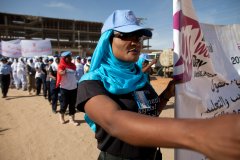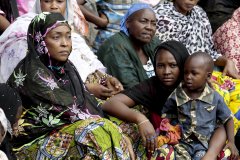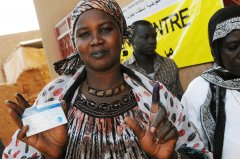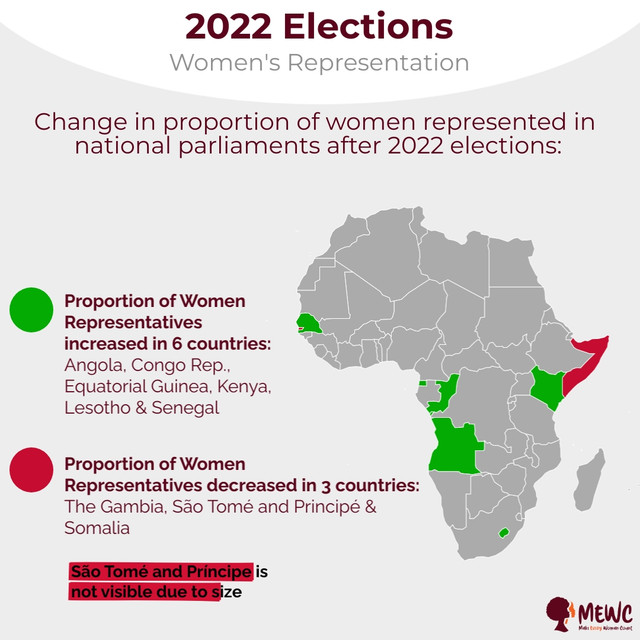Gender Issues Showlist
Women, Peace & Security
UNSCR 1325 calls on all parties to: protect and respect the rights of women and girls in conflict & post-conflict; increase women participation in all conflict resolution, peacekeeping and peace-building & to end impunity by prosecuting perpetrators of sexual and other violence on women and girls
index.php?option=com_content&view=category&id=56&Itemid=1913
Human Rights of Women
Thirty six years after the adoption of CEDAW, many women and girls still do not have equal opportunities to realize rights recognized by law. Women are denied the right to own property or inherit land. They face social exclusion, “honor killings”, FGM, trafficking, restricted mobility, early marriage,...
index.php?option=com_content&view=category&id=44&Itemid=1908
Violence Against Women
Violence against women is the most shameful human rights violation. Gender based violence not only violates human rights, but also hampers productivity, reduces human capital and undermines economic growth. It is estimated that up to 70 per cent of women experience violence in their lifetime
index.php?option=com_content&view=category&id=69&Itemid=1912
Political Participation & Leadership
Where women are fully represented, societies are more peaceful and stable. Women political participation is fundamental for gender equality and their representation in positions of leadership must be a priority for all Africans governments.
index.php?option=com_content&view=category&id=65&Itemid=1911
Latest News
- COTE D'IVOIRE: South-South Meeting to Promote Gender Equality and Combat Deforestation
- RWANDA: Rwanda Set to Launch Cervical Cancer Elimination Plan
- NIGERIA: Over 5,000 Nigerian Women Stranded in Iraq - Govt
- SUDAN: Healthcare Collapse Threatens Pregnant Women in Sudan's Sharg El Nil
- GHANA: President Nominates 12 More Ministers
- Senegal: Parliamentary election 2024
- Mauritius: Parliamentary election 2024
- Ghana: Presidential and Parliamentary Elections
- Botswana: Parliamentary elections 2024
- Algeria: Presidential Election 2024
SUDAN: Dialogues Needed to Tackle Violence Against Women, ‘Accountability Deficit’ in Sudan – UN expert
Source:United Nations News Centre
More open and constructive dialogues should be held among Sudanese stakeholders as a top priority to address ‘the silence and the denials’ of crimes against women, a United Nations human rights expert concluded after her recent mission to the country.
“The silence and the denials, whether by State authorities or many civil society participants, regarding the subject of violence as experienced by women, is a source of concern,” Rashida Manjoo, the UN Special Rapporteur on violence against women, said in a news release which covered the events of her 12-day visit to Sudan.
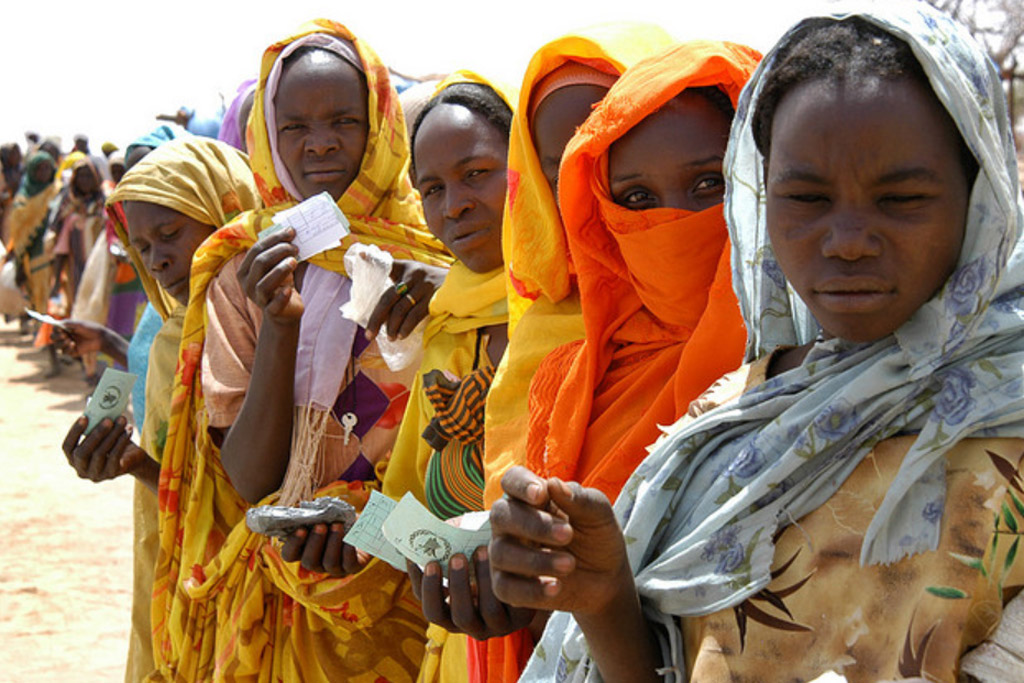
Internally displaced women hold their ration tickets while waiting for a World Food Programme distribution in Mastura, West Darfur, Sudan. Photo: UNHCR/Helen Caux
Reports and interviews demonstrate that women and girls in Sudan live in deep inequality, underdevelopment, poverty, and sometimes hostile environment. Not only does this happen in public and private spheres, but it also exists in both conflict and non-conflict zones, according to Ms. Manjoo’s end-of-mission statement.
Of particular concern, she said, was female genital mutilation and early marriages.
“Traditional, cultural and social norms,” Ms. Manjoo explained, “prevent disclosure and the seeking of assistance from persons outside of the family unit.” She therefore called on the focus on reconciliation with accountability, for crimes against women and girls.
In addition to physical, psychological and economic violence, women and girl asylum seekers and refugees also suffer from sexual humiliations during trafficking. Being insecure in conflicts has rendered them vulnerable to such violence.
Apart from above manifestations, challenges remain in legal measures. “Violence also occurs as a consequence of “the discriminatory interpretation and implementation of provisions of some laws,” noted Ms. Manjoo.
Efforts have been made at policy and institutional levels, the UN rights expert said, while noting a clamping down on non-governmental organizations (NGOs), with women’s rights organizations in particular.
“The issue of access to justice and of justice itself, for crimes experienced by women and girls, requires attention,” highlighted the expert, “especially through addressing the accountability deficit that seems to be the norm in Sudan for gendered crimes.”
Ms. Manjoo urged the Government of Sudan and stakeholders, especially with the international community and the UN, to find common ground in constructively engaging and addressing the tensions that exist in the people living in Sudan.
“Holding accountable State authorities who perpetrate violence is also an imperative in the current context,” stressed the Special Rapporteur, calling on the Government to establish a Commission of Inquiry which includes national and international experts to investigate allegations of mass rapes in different regions.
Independent experts or special rapporteurs are appointed by the Geneva-based Human Rights Council to examine and report back on a country situation or a specific human rights theme. The positions are honorary and the experts are not UN staff, nor are they paid for their work.

